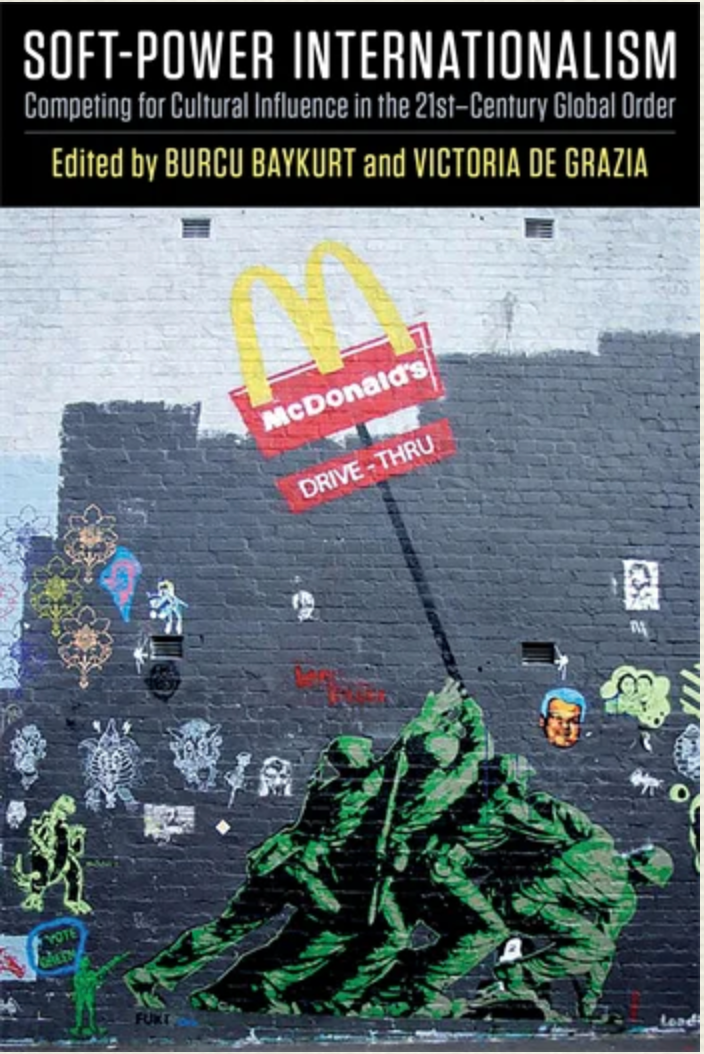https://cup.columbia.edu/book/soft-power-internationalism/9780231195454
The term “soft power” was coined in 1990 to foreground a capacity in statecraft analogous to military might and economic coercion: getting others to want what you want. Emphasizing the magnetism of values, culture, and communication, this concept promised a future in which cultural institutes, development aid, public diplomacy, and trade policies replaced nuclear standoffs. From its origins in an attempt to envision a United States–led liberal international order for a post–Cold War world, it soon made its way to the foreign policy toolkits of emerging powers looking to project their own influence.
This book is a global comparative history of how soft power came to define the interregnum between the celebration of global capitalism in the 1990s and the recent resurgence of nationalism and authoritarianism. It brings together case studies from the European Union, China, Brazil, Turkey, and the United States, examining the genealogy of soft power in the Euro-Atlantic and its evolution in the hands of other states seeking to counter U.S. hegemony by nonmilitaristic means. Contributors detail how global and regional powers created a variety of new ways of conducting foreign policy, sometimes to build new solidarities outside Western colonial legacies and sometimes with more self-interested purposes. Offering a critical history of soft power as an intellectual project as well as a diplomatic practice, Soft-Power Internationalism provides new perspectives on the potential and limits of a multilateral liberal global order.
ABOUT THE AUTHOR
Burcu Baykurt is an assistant professor of communication at the University of Massachusetts Amherst and a faculty associate at the Berkman Klein Center for Internet and Society at Harvard University.
Victoria de Grazia is Moore Collegiate Professor of History at Columbia University. Her books include Irresistible Empire: America’s Advance Through Twentieth-Century Europe (2005) and The Perfect Fascist: A Story of Love, Power, and Morality in Mussolini’s Italy (2020).
—
Introduction: Soft-Power Internationalism, by Burcu Baykurt and Victoria de Grazia
Part 1: Historical and Conceptual Foundations of Soft-Power Internationalism
1. Soft-Power U.S. Versus Normative Power EU: Competing Ideals of Hegemony in the Post–Cold War West, 1990–2015, by Victoria de Grazia
2. Circulating Liberalism: The Global Internet and the Rise of Soft-Power Internationalism, by Burcu Baykurt
Part 2: Turkey
3. Turkey’s “Soft Power”: A Conceptual Overreach and a Conversation in Multiple Concepts, by Dilek Barlas and Lerna Yanık
4. Turkey as “Trading State”: The High Hopes for Commerce from the Boom Years to the Arab Spring, by Mustafa Kutlay
Part 3: Brazil
5. Bridge Builder, Humanitarian Donor, Reformer of Global Order: Brazilian Narratives of Soft Power Before Bolsonaro, by Oliver Stuenkel
6. Lula’s Assertive Foreign Policy: Soft Power or Dependency?, by Fernando Santomauro and Jean Tible
Part 4: China
7. China’s Soft Power in Africa: Promoting Alternative Perspectives, by Martina Bassan
8. The Evolution of China’s Soft-Power Quest from the Late 1980s to the 2010s, by Zhongying Pang
9. Global China and Symbolic Power in the Era of the Belt and Road, by Anastas Vangeli
Part 5: Euro-Atlantic Perspectives
10. The End or the Beginning of Normative Power Europe? Transcendence and the Crisis of European Foreign Policy, by Thomas Diez
11. Is There a Coherent Ideology of Illiberal Modernity, and Is It a Source of Soft Power?, by Jack Snyder









